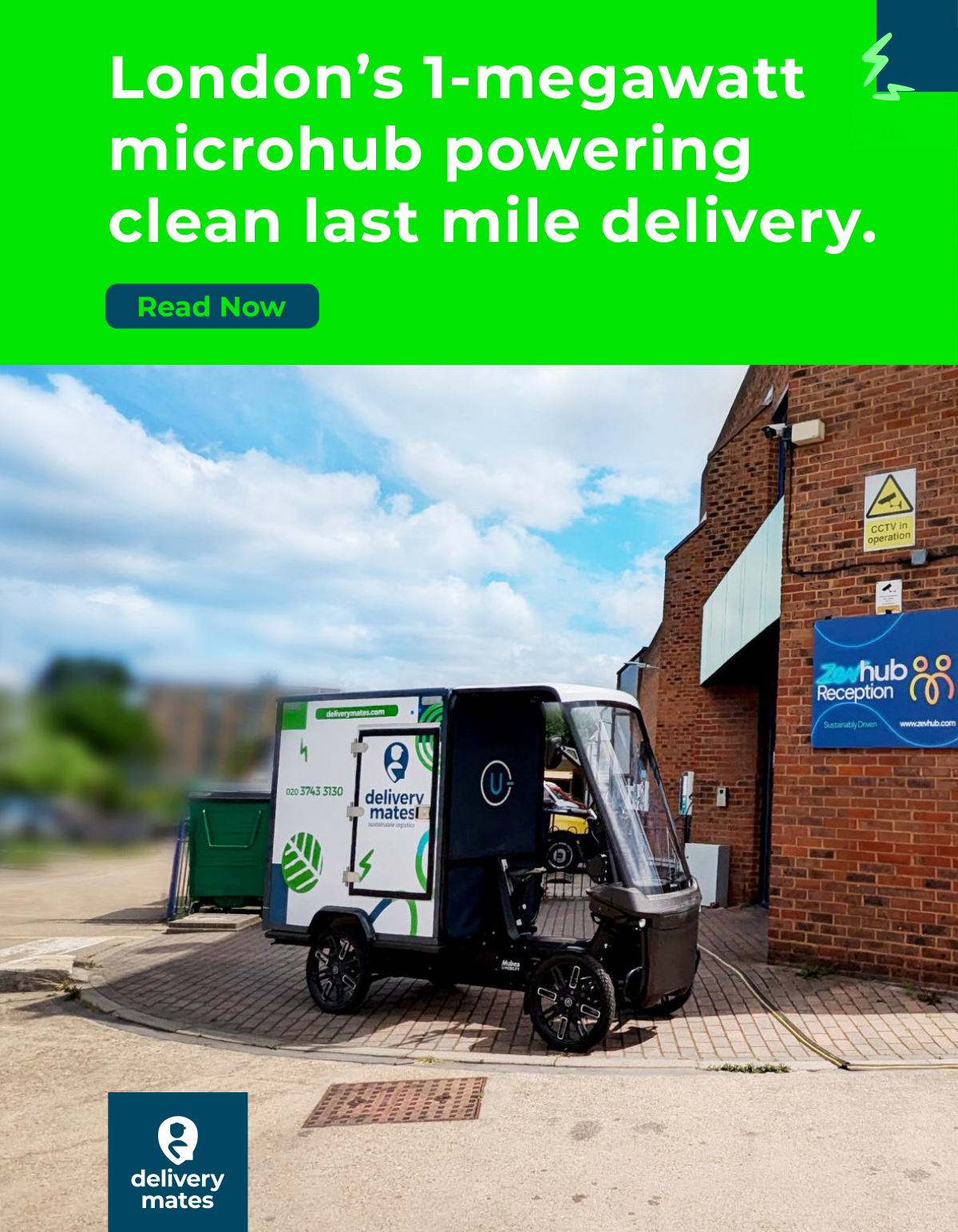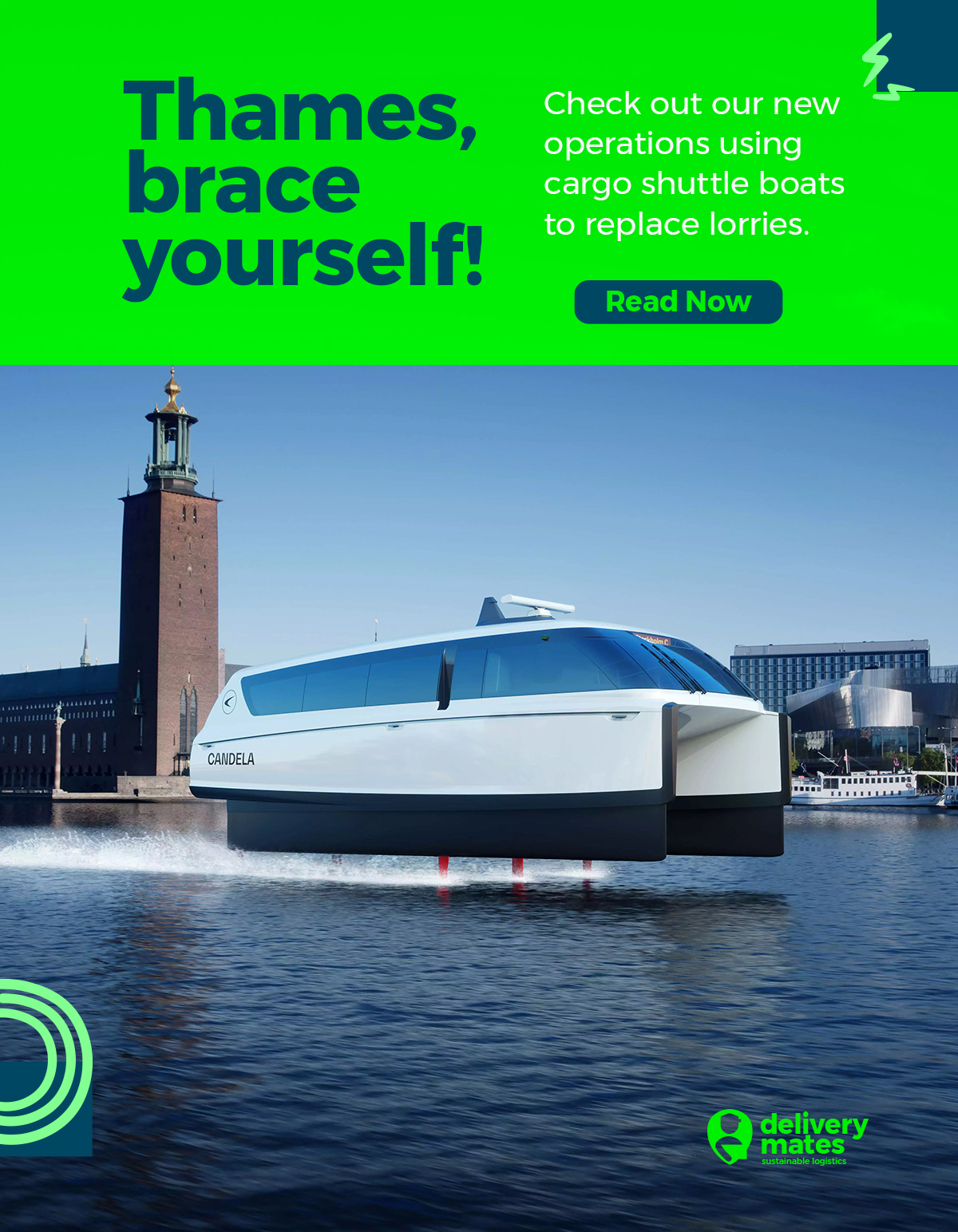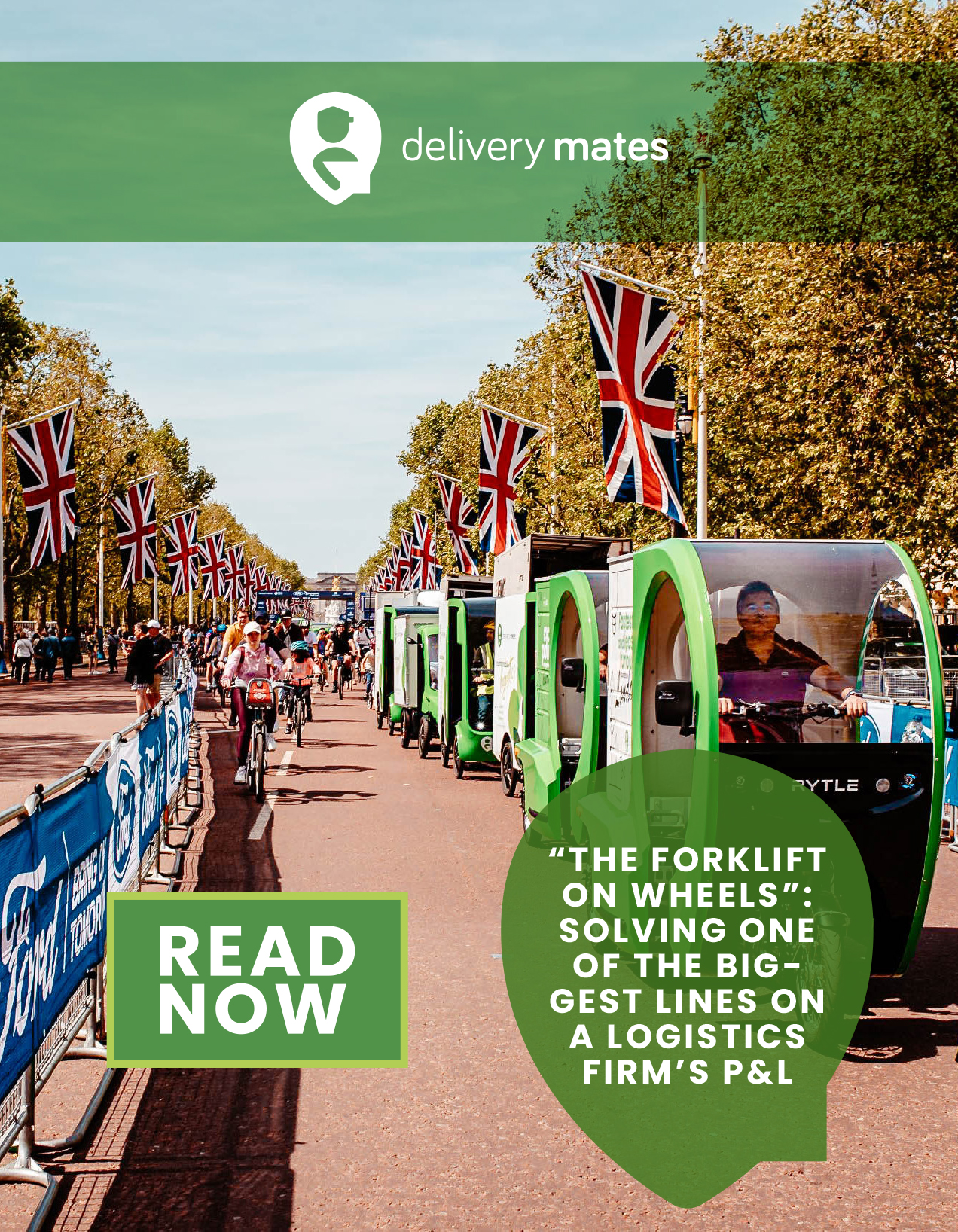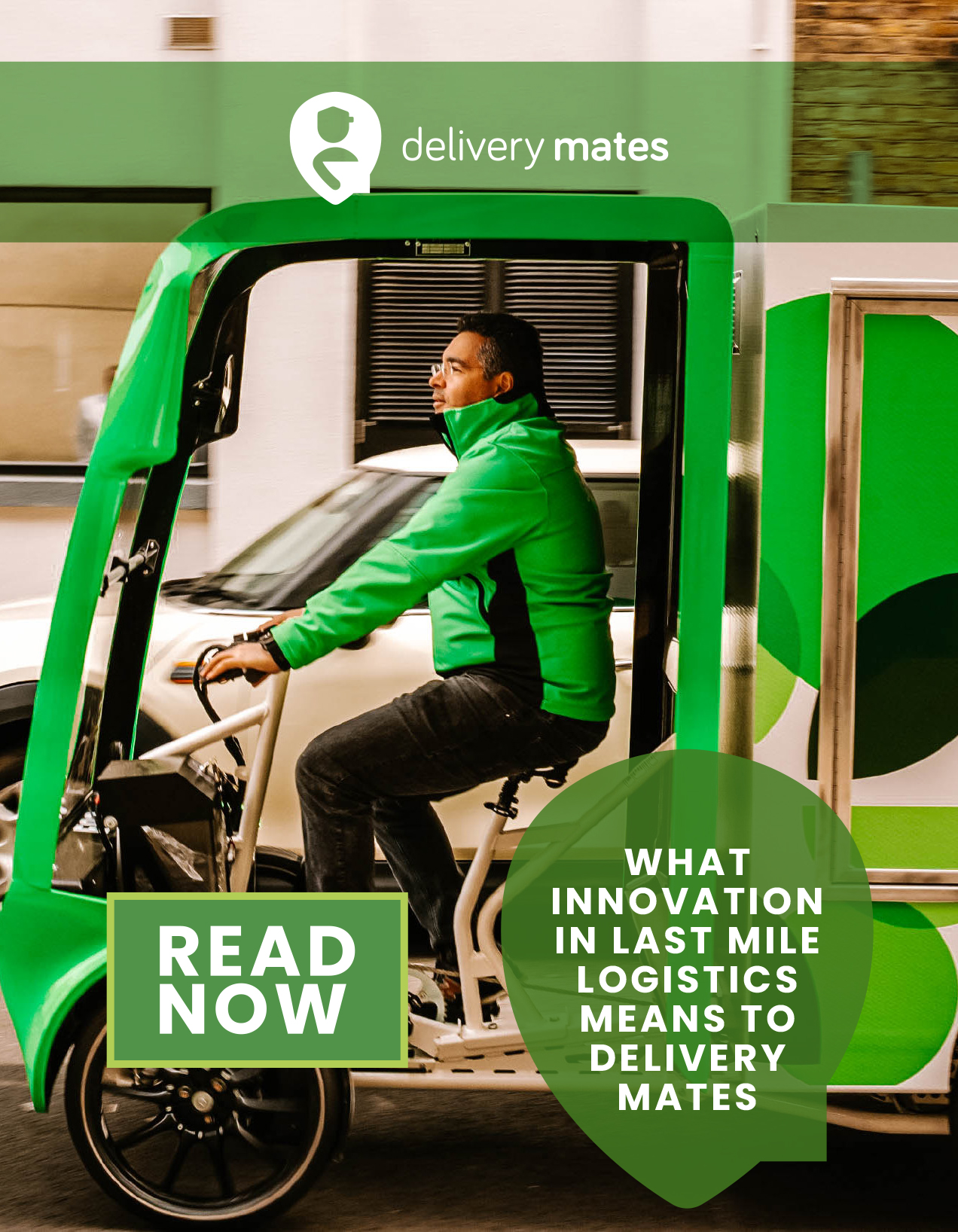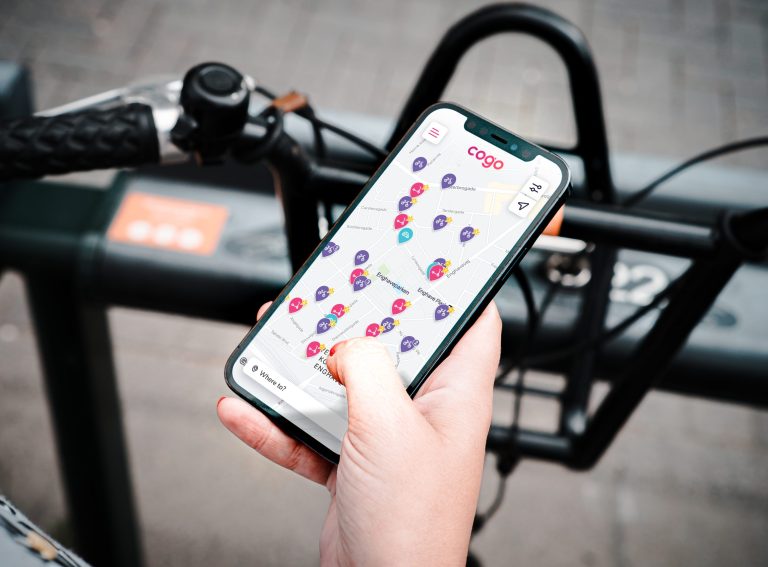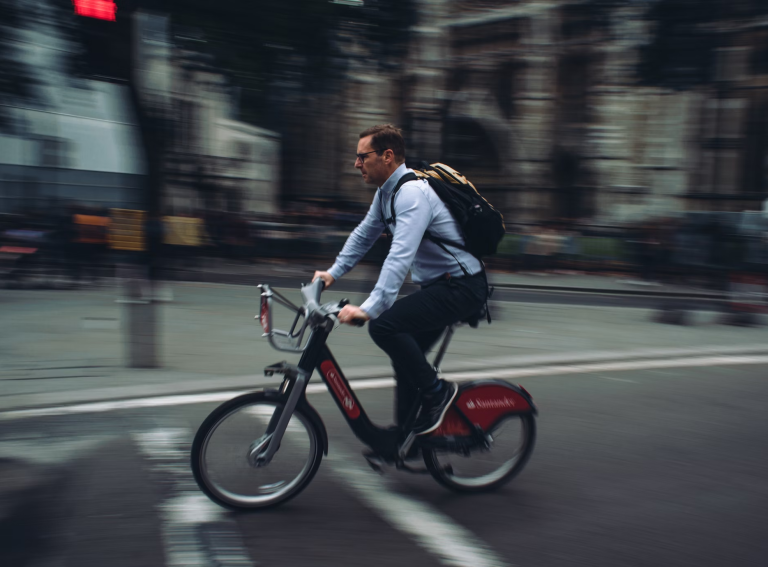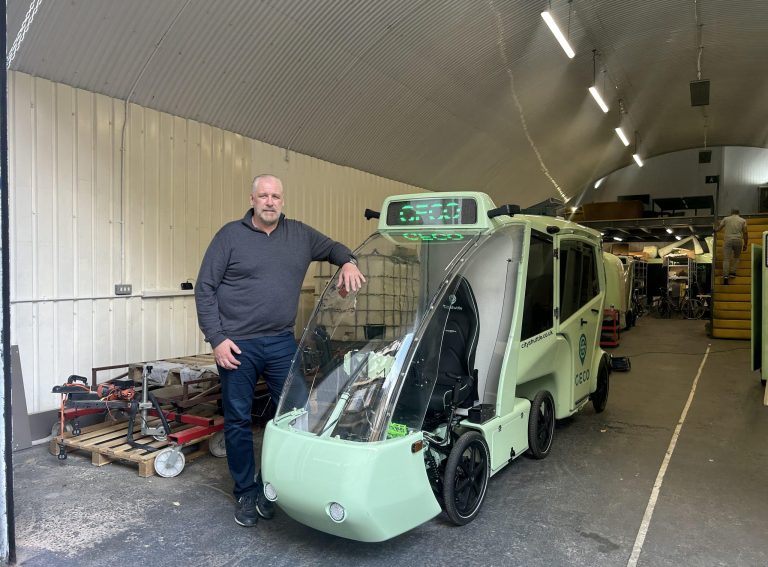Hop off a train in many towns and cities, and your choices for onward travel are limited to a taxi rank or an intermittent bus service.
Even where schemes exist, finding a cycle or e-scooter for hire can still be pretty hit and miss.
With many cities looking to reduce or exclude motor vehicles from their centres, e-mobility hubs, or eHUBS, is a Europe-wide pilot project aiming to give people more alternatives to the private car, and improving transport sustainability.
Pilot cities are still experimenting, but essentially on-street hubs will bring together at least two of a menu of e-vehicles – e-bikes, e-cargo bikes and e-cars – at transport interchanges or in residential areas, depending on demand. The hope is this will pave the way for other cities.
The eHUBS pilot, involves six cities in five countries across Europe, including Amsterdam, Manchester, Leuven, Dreux, Arnhem-Nijmegen, and Kempten. Most schemes launched last summer.
In Amsterdam the aim is to reduce car parking, with a goal of 15-20 e-hubs for short trips, with pilots providing e-bikes for keyworkers.
They also offered residents public transport credits in exchange for using their car for three months, after which 30% of participants permanently ditched their cars.
Manchester hopes to decarbonise its transport by 2038 – an ambitious goal for a city still heavily reliant on private cars.
They’ll use 25 e-cargo bikes and 10 e-cars across 10 eHUBS, opening this summer.
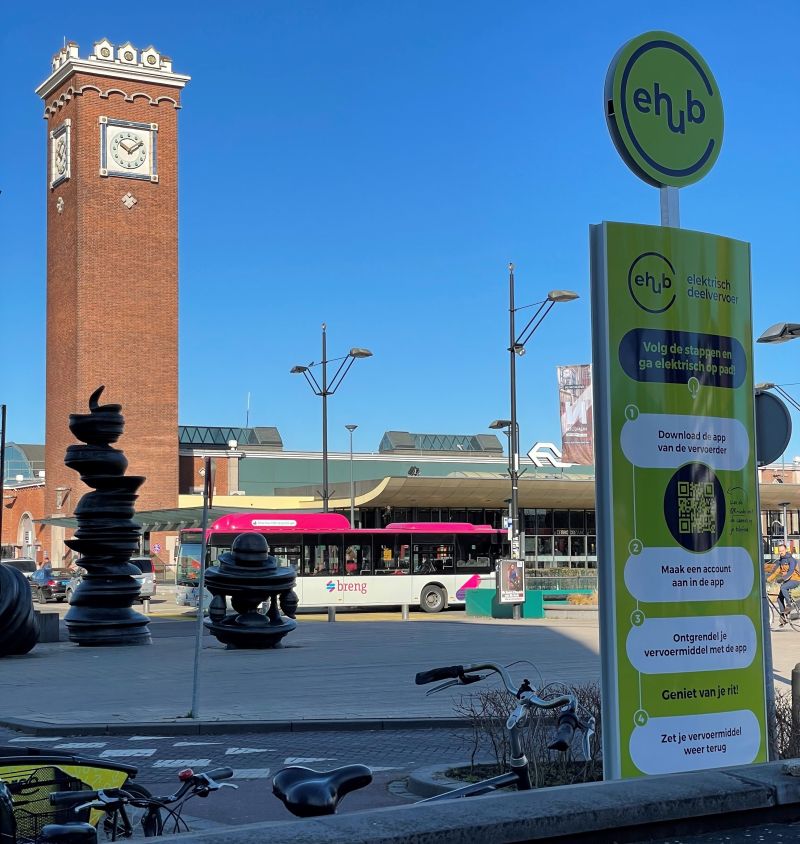
eHUBS are a crucial step for boosting sustainable travel options
Transport for Greater Manchester (TfGM) Senior Innovation Officer, Sarah Kumeta, said: “Greater Manchester’s eHUBS are a crucial step in encouraging people to choose more sustainable electric transport options over the private car.
“Our main challenge so far has been making sure we choosing the right locations for the trial eHUBS, striking a balance between locations that are easy to access, safe and serve the community.
“We’ve taken a data-led approach and worked closely with local authorities to understand which locations are likely to have the most success, as e-cargo bikes are a new way to get around locally.”
Happily, research by project partners at Newcastle University found many people are open to the idea.
In Manchester, while 77% of survey respondents aren’t currently using any shared mobility, 56% said they would consider a shared e-car and 45% a shared e-bike for some commutes.
In Amsterdam, this figure was 54% for e-cars and 57% for e-bikes, reflecting more cycle-friendly conditions.
The team at Newcastle is trying to establish, based on census data, where the most willing users might be, to identify where eHUBS would be best used – with those aged 18-25 prime candidates, declining steadily across older groups.
Modular units that can be moved may help finesse, by trial and error, what works – an approach Manchester is considering.
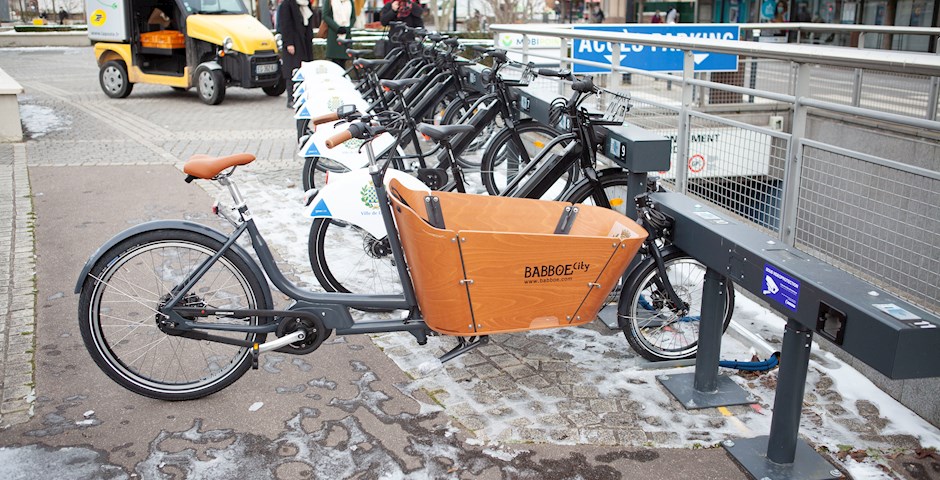
E-scooters should be part of the picture too
E-scooters aren’t currently part of the picture, but researchers at Newcastle Uni think they could be, offering another option for trips under 7km.
E-scooter operators certainly see themselves as part of the future for the project.
Fred Jones, Tier’s general manager for Northern Europe, said: “This concept of the 15-minute city, which is about living local, I think mobility hubs can be a really good enabler for that.
“You can tackle these ‘transport deserts’ [areas poorly served by transport] to get people out living locally, and more effectively levelling them up, because you can then connect to the transport hubs and the main amenities in a more efficient way.”
Transport operators are already thinking about micromobility in network terms, if only to prevent problems for themselves.
Stuart Palombo, CEO of Qi Managed Services, which distributes Duckt, a flexible e-scooter and e-bike docking and charging system, says he is already in ‘quite advanced talks’ with rail operators looking to integrate e-mobility into their network.
“The last thing a train operator wants anywhere is suddenly loads of E-scooters and E-bikes on their rolling stock,” said Palombo.
“They’re thinking, well hang on a second, if, if the DfT [Department for Transport] in 12 months’ time legalises the use of these scooters, never mind [existing] e-bikes, then all my customers are going to want to bring the scooter or the bike with them.”
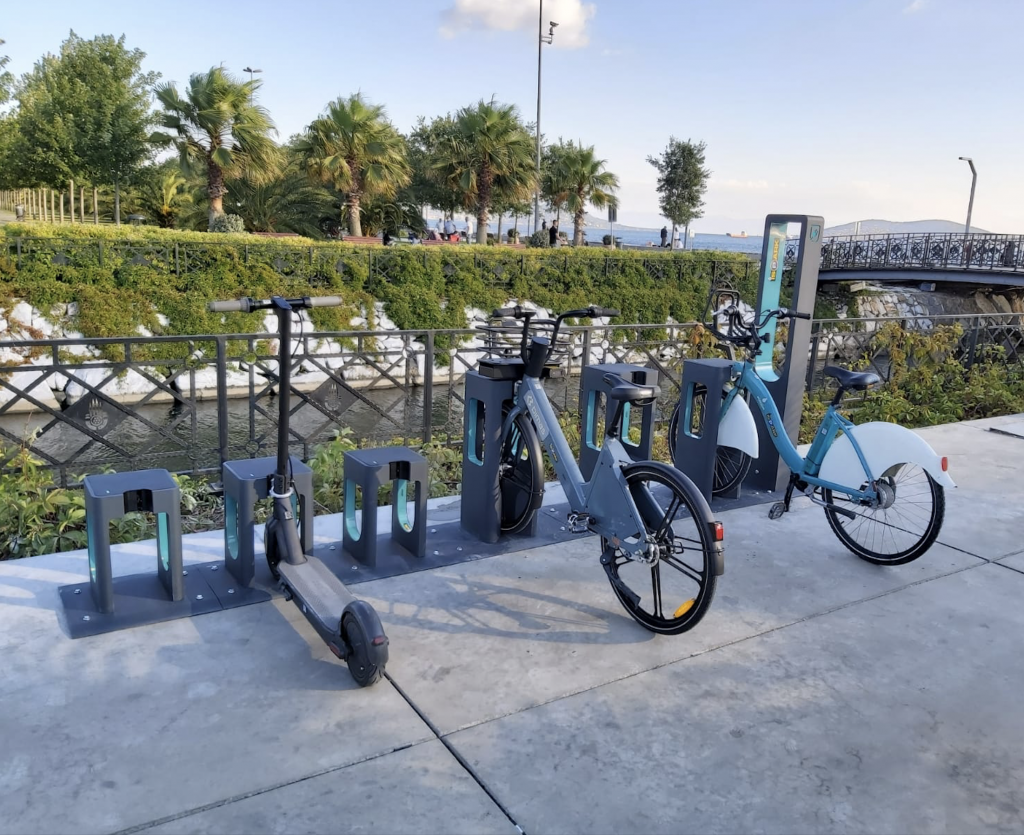
Palombo points out that, as we come out of lockdown, travel patterns may change and people may not want to commute each day, so e-mobility can further step in as car replacements.
Cycles can also shift larger loads.
In Manchester 38% of survey respondents said they’d consider using an e-cargo cycle for grocery trips, and 48% in Amsterdam.
Raleigh Bikes’ cargo cycle arm launched in September and is already supplying five or six local authorities in England, who loan cargo cycles to small businesses, as van replacement trials.
Ed Pegram, Raleigh’s Commercial Partnerships Manager, said while his current focus is on business cycles, “we think there’s an enormous opportunity for shared assets for families”.
These machines are £3,000-£5,000 each, so shared services mean more people can access them, also effectively providing a “try-before-you-buy” service – which, as with e-bikes, can be crucial to help people understand the machines and their benefits.
Pegram believes for businesses, links with transport hubs is key, meaning delivery riders, who may not have a driving license, can catch a train or bus to an e-hub or even a micro-consolidation centre, where goods are unloaded from larger vehicles, or trains, to cargo cycles.
Theft has already impacted the Amsterdam e-bike trial, and security will be key, given the value of such machines.
Amazon locker manufacturer, Lockem, is trialling app-based storage solutions, that could work for e-cargo bikes, ebikes and e-scooters.
These are solar-powered, allowing for battery charging without an external electricity supply. Not everyone is sold on this idea, however, and what works in one city may not work in another.
Main barriers to eHUBS
According to Newcastle Uni research, the main barriers to eHUBS use include the cost of renting shared vehicles (20%), concerns about safety (19%), a lack of awareness (18%), and concerns about the availability of shared vehicles (17%).
For the future, researchers would like to see eHUBS tackling entire trips, not just first and last mile, or even integrating with linear bus routes to reduce the need for services to “peel off” at each neighbourhood, lengthening journey times for everyone.
Professor Margaret Bell, eHUBS Co-investigator at Newcastle University, said: “The most impact on reducing carbon [emissions] is getting rid of cars, and actually substituting the door-to-door by car with a multimodal trip using electric mobility. That gives us the biggest winners in the longer term.”

